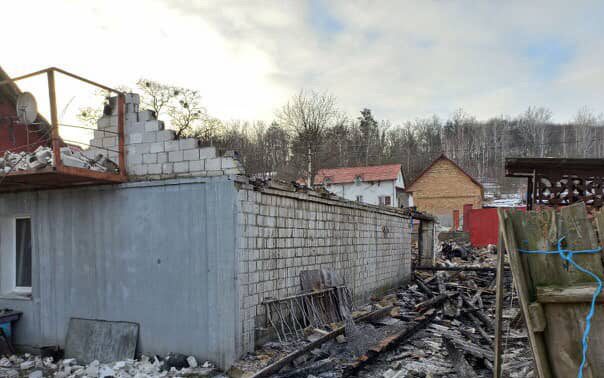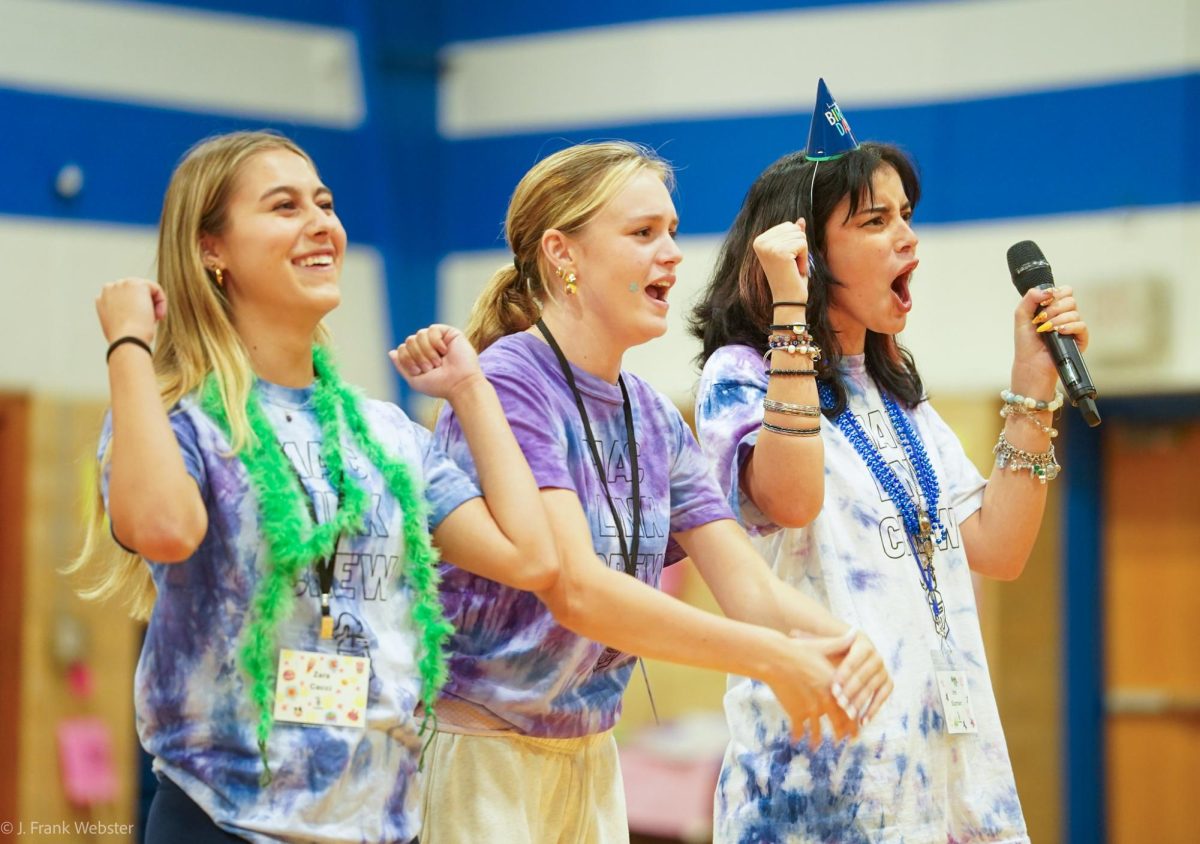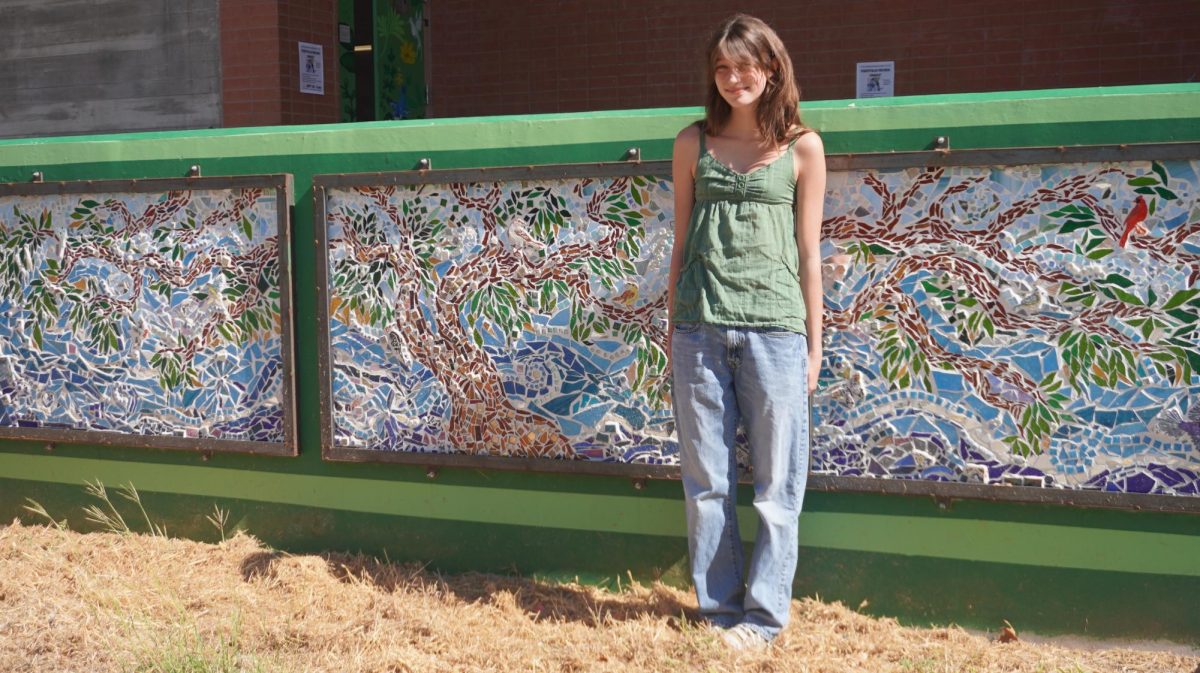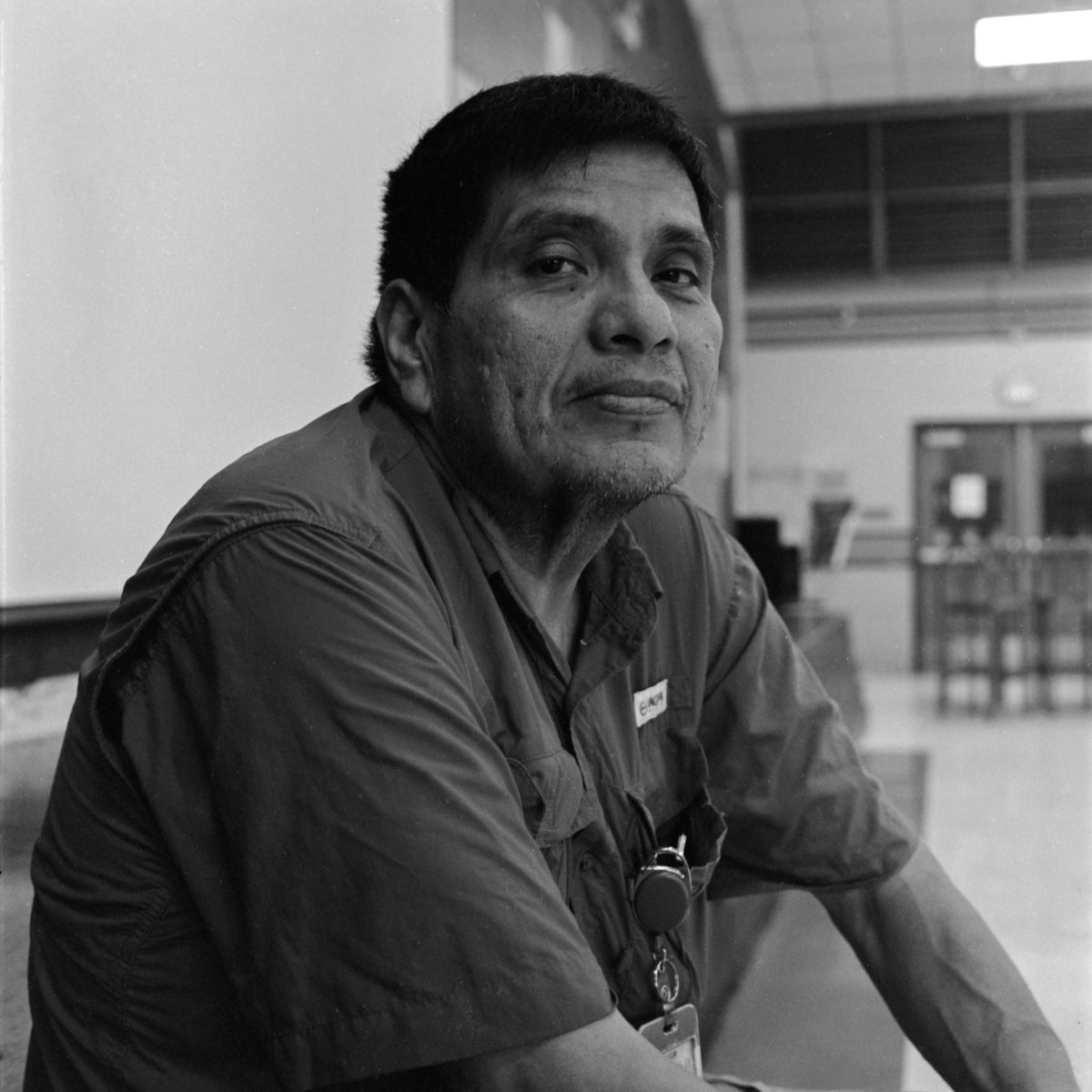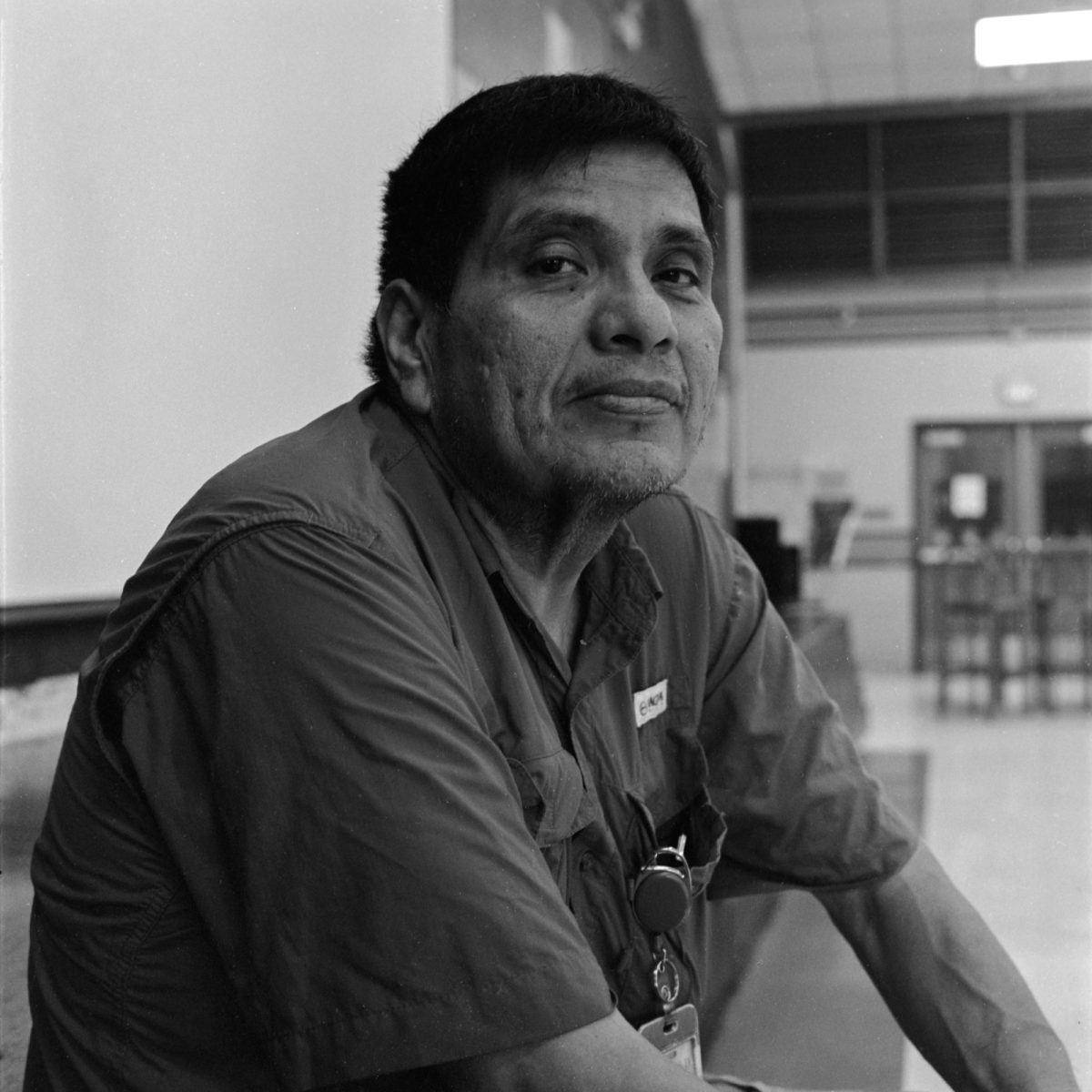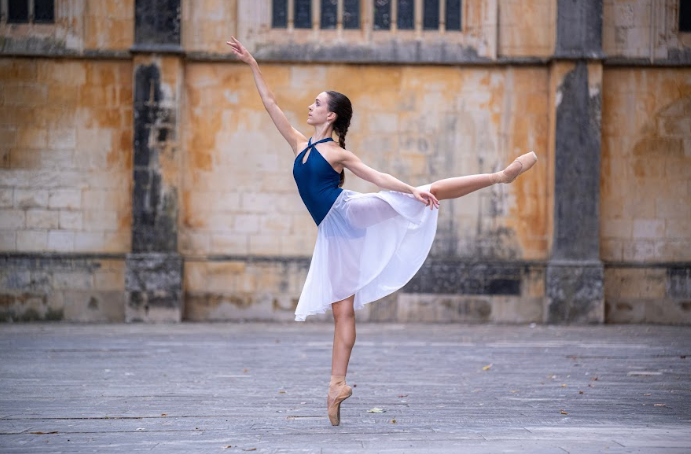Across the world from one another, two Ukrainian girls heard the sound of fireworks crackling on a calm, clear night. But in their memory, that sound was anything but calm. For Anastasiia Musiiaka and Milana Titarenko, survivors of Russia’s ongoing invasion of Ukraine, the sound of fireworks echoes the missiles that have ravaged their homeland since Feb. 24, 2022.
Musiiaka, who moved to Austin the week before her freshman year at McCallum, is now a senior. For her American classmates, senior year represents freedom, independence and self-sovereignty. But for Musiiaka, it’s a reminder that during her entire high school experience, her country has been fighting for those same rights. The last time she visited Ukraine and her grandmother’s house was in the summer of 2024 – and she fears she may never be able to return.
“My grandma’s town was occupied and her house is now completely ruined,” Musiiaka said. “It’s painful even to think that I probably won’t ever be able to go back, and my childhood photo album is likely now lost somewhere in the dust because when my grandma was leaving, she was rushing to get out and forgot it.”
During Musiiaka’s stay in Kyiv, where she’s from, she experienced the anxieties of life under threat. For most of Ukraine, air strikes have been a daily occurrence for years.
“Almost every night there were air alerts, which meant people had to go down to the shelters,” Musiiaka said. “Sometimes the alerts lasted up to 8 hours, so you’d have to spend all that time in the shelter, trying to sleep there. It’s truly terrible, people live in constant fear of dying at any moment or losing their homes or loved ones, because you never know whose house will be next.”
For Musiiaka, the visit illustrated the stark divide between her peacetime life in America and what her countrymen undergo every single day. It also brought on survivor’s guilt.
“My heart especially breaks for the kids who go to school while hearing these air alerts,” Musiiaka said. “I stay in contact with my friends a lot when I read the news about massive attacks. I feel guilty that I’m here safe and sound while they are in danger, trying to survive these terrible nights.”
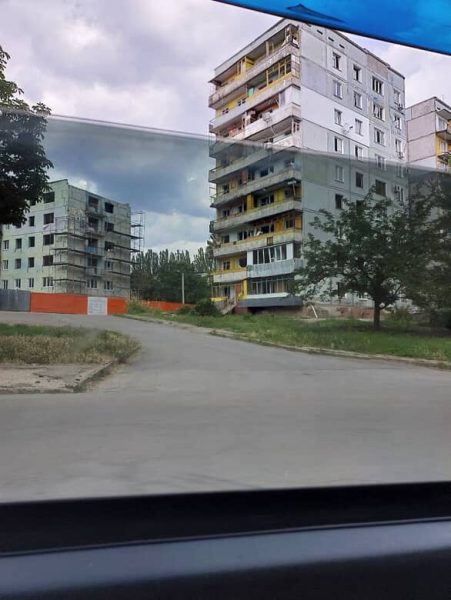
For Musiiaka’s friend Titarenko, who she keeps up with, the survivor’s guilt is also palpable. Titarenko’s hometown is currently occupied by Russia and she was forced to flee to the Czech Republic as a refugee, both psychologically and physically devastated.
“But on the day the war started, my mental state was shaken,” Titarenko said. “For an entire month I didn’t eat anything, I only drank tea and sometimes had a small snack. I didn’t go outside for half a year, not even for a walk. Because of that, when I later went to a Czech school, P.E. was very hard for me since I was no longer used to physical activity.”
Titarenko is just one of over 5 million Ukrainians who have fled the country to escape war. Of those, many come from conflict stricken cities like Mariupol, which was besieged and captured by Russia in 2022 in what the BBC described as an “apocalypse.” Indeed, Russian Colonel-General Mikhail Mizintsev was nicknamed the ”Butcher of Mariupol” for ordering the bombing of the Mariupol Children’s and Maternity Hospital and for openly firing on civilians at evacuation checkpoints.
That’s why Titarenko was surprised when she met one of Mariupol’s survivors while celebrating her birthday in Zaporizhzhia in March.
“My grandmother and I decided to go into a bakery. There, I noticed a very emaciated girl who was ordering a lot of food, which seemed strange to me,” Titarenko said. “I don’t even remember how our conversation started, but it turned out that she was a woman evacuated from Mariupol. I was shocked, because at that time there was nothing but terrible news about that city and I couldn’t even imagine that someone could get out of there alive.”
Titarenko said that the woman was ordering so much food because it was for a bus of refugees from Mariupol and that the woman proceeded to recount her harrowing story of survival.
“She told me how she had been hiding in different basements and barely eating anything,” Titarenko said. “Every day she lived under shelling, thinking those might be her last minutes. She was very lucky: volunteers found her and evacuated her together with others. They gave her food and water… When I looked into her eyes, I saw a truly strong person. It was frightening even to imagine everything she had gone through.”
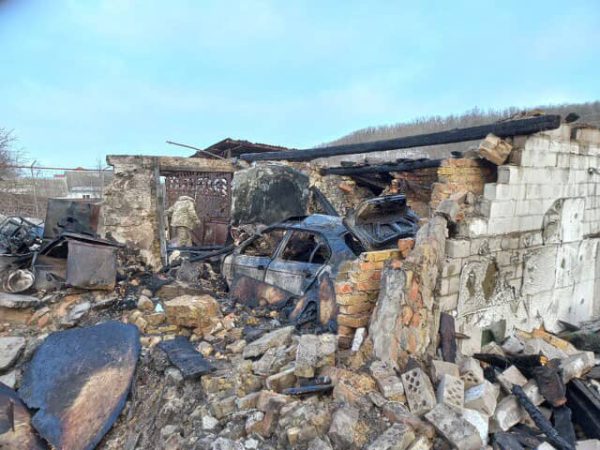
According to Titarenko’s childhood friend, Daria Khoklova, this resilience is typical of Ukrainian communities under occupation.
Khoklova, whose town currently lies under occupation, now resides in Kyiv as the result of a “green corridor” – passages through which Russia professes to guarantee Ukrainians safe evacuation that are often used as sites for massacres. Many green corridors have also been stopped by Russian soldiers, with Ukrainians forced to wait on buses and no promise of safety. Luckily, Khoklova’s green corridor was truly secure.
“I remember one case when we, together with our neighbors, organized a shelter and helped each other with food and medicine,” Khoklova said. “Despite the destruction and danger, people preserved the spirit of solidarity and mutual support.”



